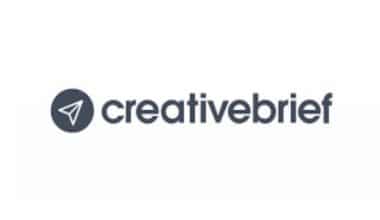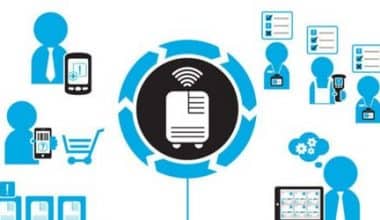An HRIS can help you plan your workforce by giving you information on the number of employees, turnover, and other important metrics. You can use this data to make better decisions about staffing, including hiring, firing, and layoffs. On the other hand, the HRIS analyst manages databases and computer systems to assist organizations in managing their human resources. There are many benefits to using the HRIS. In this article, we will learn about the top HRIS systems, their uses, and their benefits.
What Is HRIS?
HRIS is an abbreviation for Human Resources Information System. It is a system that collects and stores information about an organization’s employees. Generally, the Human Resources Information System will include all of the essential features for complete HRM. It’s a system for recruiting, performance management, learning and development, and other functions.
Human Resources Information Software is another name for an HRIS. This is a little perplexing because it implies that different systems can run different software. This, however, is not the case. The Human Resources Information System is essentially a piece of HR software.
In the same way, HR information systems can run on the company’s network or, more commonly today, on a cloud service. This means that the HR software is running outside of the company’s walls, making updates much easier.
Who Uses HRIS System?
HR professionals use HRIS to manage employee data. It consolidates information in a single location and eliminates the need for many spreadsheets, databases, and papers.
What Are the 5 Different Types of HRIS Systems?
There are a few features that all HRIS systems share. They help HR professionals do their jobs better by giving them the benefits of automation, self-service, centralized databases, and talent management. In the end, this is good for the organization as a whole. Aside from that, each type of HRIS has a unique set of features. Here is an overview of the five different types of HRIS systems and those they benefit the most.
#1. Operational
Human Resources information, such as employee profiles, job descriptions, and reviews of employee performance, is compiled and reported by functional HR systems. They help HR managers with performance management, promotions, hiring, and internal personnel changes.
Furthermore, operational HR systems can help with standard HR functions in a variety of organizations. An effective HRIS system may be what you need if your human resources department spends too much time on mundane people management tasks or searching through piles of paper or digital documents in search of information about your staff members.
#2. Tactical
Tactical HRIS systems manage human resources processes. This includes recruiting, training, compensation, and vacancies, among other things. These are more useful for making large-scale decisions about resource allocation, job analysis, and development. Tactical HR systems deal with data other than internal figures, such as union information, competitor data, government requirements, etc.
Tactical HR systems are best suitable for organizations that require assistance in making macro-level decisions about what to do with resources rather than those that require assistance with smaller day-to-day tasks.
#3. Comprehensive
A comprehensive HRIS is a hybrid of the above types, involved in all aspects of HR, including operational, tactical, and strategic issues. These serve as a smooth database and platform for the easy review and management of a wide range of HR-related tasks, such as:
- Employee information
- Job analysis and design
- HR files
- Recruitment and hiring details
- Employee safety guidelines
- Skills inventory
- Open positions
- Performance management
- Compensation and benefits
- Training and development
A comprehensive HRIS serves as a one-stop shop for storing and displaying all the information required to perform almost all HR functions. While they may be more expensive or require more training and resources to operate, comprehensive HR systems can provide a plethora of useful features that can ultimately transform how an HR department operates.
#4. Strategic HRIS
Strategic HRIS systems, as the name implies, aid in strategic analysis and decision-making. They help human resource managers with tasks like establishing priorities and preparing for the future of their workforce. Using market data and operational budgets, strategic HR systems can improve workforce planning and visibility into available labor resources.
Moreover, organizations with long-term growth and expansion plans benefit greatly from strategic HR systems. A strategic HRIS is worth considering if you want to base future business decisions on hard data and sound analysis rather than guesswork.
#5. Limited-Function HRIS
A limited-function HRIS is different from a full-featured one in that it only does one thing. They are not designed for strategic planning or management. Instead, their roles are more specific and granular.
The precise function of each limited-function HRIS is set by the system. For example, an HRIS could be designed specifically for employee training or benefits management.
Smaller businesses can benefit more from HR systems because they are typically more cost-effective, user-friendly, and well-suited to being used by a single HR manager.
Examples of HRIS Systems
There are three HRIS software examples to consider:
- HRIS: A human resource information system is a system that manages people, policies, and procedures.
- HCM: Human capital management incorporates everything from an HRIS to talent management and global features (such as multi-currency, multi-lingual, and localization options).
- HRMS: The human resource management system combines key components from HRIS and HCM. This includes managing your policies and procedures, as well as various language features and talent options.
Your business determines which to use. HRIS provides real-time automation features, and you don’t want to underrate their importance.
What Are the Benefits of HRIS?
Using an HRIS has a number of clear benefits. As a result, businesses of all sizes use this tool to support their human resource operations. The HRIS is the central repository for employee data. In one system, a wide range of employee data is then easily accessible.
- Record-keeping: Human resource information systems are databases that document and track modifications to employee-related information. When it comes to personnel data, HR information systems can be viewed as the single source of truth.
- Compliance: It is necessary to gather and store certain information for compliance purposes. This includes material for identifying employees in the event of theft, fraud, or other misbehavior; first contact information in the event of an accident; citizen identification information for the tax office; and mandatory certification expiration dates. However, the HR information system is the perfect place to keep track of all this data. Compliance with General Data Protection Regulation requirements requires the most stringent measures of data security possible.
- Efficiency: Having all of this information in one location not only improves accuracy but also saves time. Some businesses still keep a lot of information about their employees on paper. Finding the right folder and the right sheet can consume a significant amount of staff time.
- Human Resource Strategy: The HRIS allows for the tracking of data needed to advance HR and business strategy. Depending on the organization’s priorities, different data will be required to be tracked. This is where the Human Resources Information System comes into its own.
- HR Self-Service: Another advantage is the ability to provide self-service HR to employees and managers. Employees can now manage their own affairs. When done correctly, the HR information system can provide a positive employee experience.
What Are the Uses of HRIS?
Any organization would benefit from finding an HR software solution that can save time. The Human Resources Information System can run on a company’s IT infrastructure. However, companies prefer to use cloud-based software providers that supply, manage, and update HR software.
A solid HRIS will allow an organization to manage employee data more easily and efficiently while also contributing to an employee’s growth and development. Using such HR management solutions creates a structure that improves employee performance and also serves as a reliable hub for all employee information inquiries.
HRIS also benefits from having all of this data in one easily accessible location so that they can use it for strategic workforce planning. Since this information can be used to spot patterns and problem areas in the workplace,
What Is an HRIS Analyst?
A human resource information systems (HRIS) analyst is a professional who manages databases and computer systems to assist organizations with human resource management. The duties of an HRIS analyst include research, the enhancement of existing HR information systems, and the creation of new ones; as well as the creation of recommendations for the enhancement of performance indicators in all areas of the business. Lastly, you’ll work with a team of HR experts and managers from different departments to make sure an organization runs as smoothly as possible.
What are HRIS Skills?
HRIS skills are excellent interpersonal and technical support. Organizational and detail-oriented. Problem-solving and analysis skills. Human resource policies and processes to guarantee the HRIS fulfill organizational goals.
Responsibilities of an HRIS Analyst
- Upgrade applications and provide training and technical support.
- Create and implement new HR management processes and systems.
- The HRIS analyst improves the process by integrating new software and running diagnostic tests.
- Run queries and statistical analyses on the collected Human Resources Information System data.
- Ensure that HR metrics, such as attendance and employee performance data, are efficiently recorded and securely stored.
- Conduct periodic audits of HR records and procedures, such as those pertaining to hiring, firing, and payroll processing.
- Keep up with technological advancements and trends in the Human Resources Information System field.
- Consultation with human resource managers and other departments to determine HR information system requirements
- The HRIS analyst also conducts performance metrics analysis and resolves application issues.
- process documentation, identify HR issues, and compile data analysis reports.
What Is Another Name for HRIS?
Human resources management system (HRMS), human resources information system (HRIS), and human capital management (HCM) are all often used interchangeably
Conclusion
Ultimately, to determine the HR information system best for you, you’ll need to have a thorough understanding of your organization’s goals, where your HR team requires the most assistance, and what kind of return on investment you can expect. Having a firm grasp of your requirements will also allow you to zero in on the HRIS that will do the most good for your organization.
What are HRIS FAQs?
What is HRIS and why it is important?
An HRIS stores applicant tracking functions, onboarding, employee demographics, compensation and benefits choices, and time-tracking. It’s also your employee data hub, with up-to-date information on your organization’s hiring trends and employee retention.
Why do companies use HRIS?
Human resources information systems (HRIS) combine HR and IT to help businesses better manage HR processes and data. Any company, regardless of industry, can use HRIS technology to improve employee experience and make time-consuming HR tasks easier.
What is HRIS implementation?
An HRIS implementation is the crucial step taken to create a new platform for integrating HR processes and technology.
Related Articles
- What Is Strategic Financial Management?- Functions and Importance
- BUSINESS MANAGEMENT: Definition and Introduction Business Management Degrees
- Asset Allocation: Beginner’s Guide to the Investing Strategies (+Examples)
- Project Planning: A Guide To Project Planning Techniques
- Human Resource Management: Definition and Guide For Small Businesses






